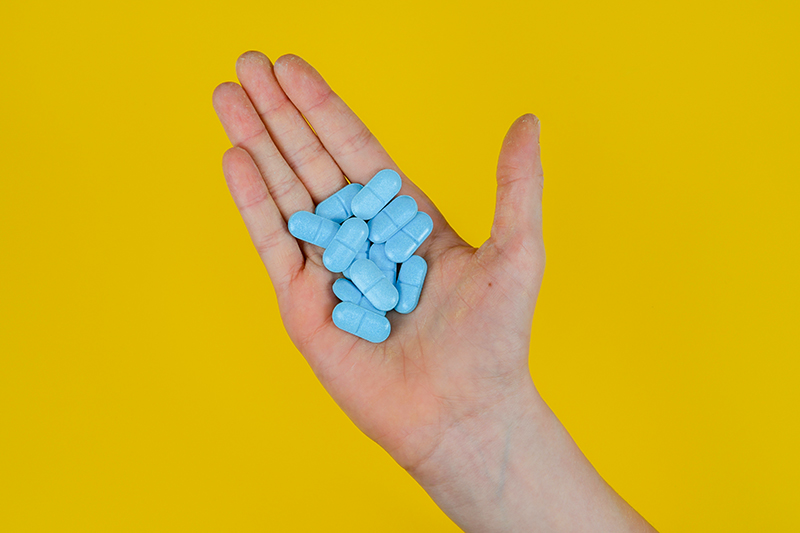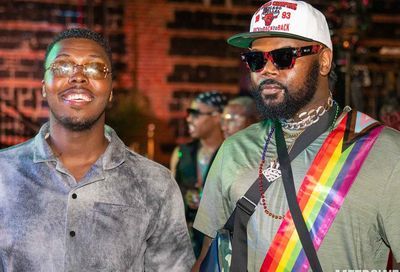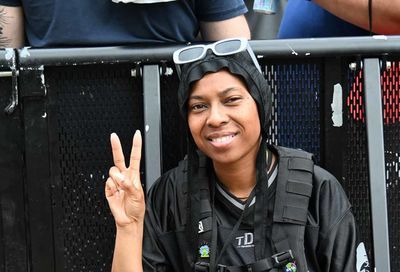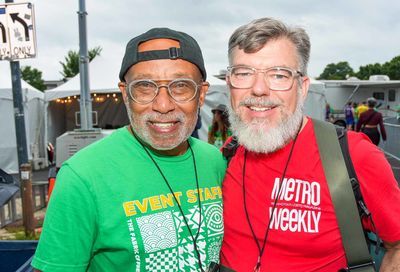Report Highlights HIV/AIDS Disparities
Black AIDS Institute and others call for targeted effort to battle epidemic among black gay men
A group of HIV/AIDS experts and activists called for decisive, targeted actions aimed at reducing the prevalence of HIV/AIDS among black men who have sex with men (MSM) at a press conference this morning in Washington, featuring a report showing this population to be the most affected by AIDS out of any in the developed world.
”Black MSM continue to be first in line when it comes to need, but remain at the back of the line when it comes to assistance,” said Phill Wilson, founder and executive director of the Black AIDS Institute, which published the report. ”The report sheds light on the disparities that are fueling HIV among black MSM and calls for bold action, not business as usual.”
The report also ranked 25 major cities to determine which addressed the needs of black MSM most effectively with regard to HIV, looking at, among other things, total HIV federal grant dollars per individual living with HIV; the amount of Centers for Disease Control and Prevention (CDC) funding for HIV prevention; HIV-testing rates; Ryan White Act funding’ AIDS Drug Assistance Program (ADAP) funding; ADAP waiting lists; the exclusion of single, childless adults from Medicaid; and antidiscrimination provisions, if any.
In mixed news for the region, Washington ranked second on the ”best list,” behind New York. However, Richmond, Va., ranked third from the bottom. Among the factors influencing Richmond’s low ranking were its policies excluding single, childless adults from Medicaid, and nearly 600 people living with HIV being placed on an ADAP waiting list. The state of Virginia alone accounted for 28 percent of all people nationwide on ADAP waiting lists, as of June.
Wilson, who will be a featured plenary speaker at the upcoming XIX International AIDS Conference in D.C., July 22 to 27, called on political leaders to make the fight against AIDS among black MSM a national priority.
Along with Wilson, the speakers at this morning’s press conference highlighted the severity of the epidemic among younger black men, despite evidence from various studies showing that black MSM are no more likely to engage in riskier behaviors than their white and Latino counterparts.
Ernest Hopkins, chair of the National Black Gay Men’s Advocacy Coalition and the director of legislative affairs at the San Francisco AIDS Foundation, told reporters that the major factors contributing to higher rates of both HIV and AIDS are diminished access to health care, late HIV diagnoses, a suspicion of antiretroviral medications by some men, a lack of access to and the high cost of antiretroviral medications, and lower rates of viral suppression. Hopkins also pointed out that the study found community and local health care providers were ”woefully unprepared” to deal with patients with HIV.
Hopkins pointed out that black MSM are also at higher risk for HIV because of a high prevalence of undiagnosed and untreated STDs, which make it easier to contract HIV; greater odds of having older sexual partners; higher rates of poverty, discrimination, violence, homelessness and abuse in various forms; and higher incarceration rates.
Wade Davis, an out gay man, former player for the National Football League (NFL) and the assistant director of job readiness for the Hetrick-Martin Institute, added that homophobia and the lack of a support system due to social rejection often pushes black gay men to the margins and makes it more likely they will engage in riskier behaviors.
The activists also highlighted recommendations included in the Black AIDS Institute’s report, including increasing access to services such as HIV testing, treatment and prevention services, reducing rates of STD infections, setting up community support systems and incorporating the needs of black MSM into the larger National HIV/AIDS Strategy.
Wilson said a challenge would be making sure that black gay men get tested regularly to ensure early detection and treatment of HIV. The Affordable Care Act, he said, should provide greater access to care for black gay men.
Dr. Kevin Fenton, director of the National Center for HIV/AIDS, Viral Hepatitis, STD and TB Prevention at the CDC, and Ron Simmons, president and CEO of Us Helping Us, an organization designed to help black gay men with HIV/AIDS, said they were ”excited” about the possibility of being able to prescribe a once-a-day dose of Truvada as part of pre-exposure prophylaxis (PrEP).
According to studies by the U.S. Food and Drug Administration (FDA), Truvada taken daily, when coupled with safer-sex practices, has been shown to reduce HIV infection rates. The FDA approved the Truvada for daily use among HIV-negative individuals considered at high risk of acquiring the virus July 16.
Most importantly, Fenton said, there needs to be a change in how black gay men are viewed in relation to the AIDS epidemic.
”The mindset needs to change that black gay men are not simply a fringe group in the fight against HIV/AIDS,” Fenton said. ”They are, in fact, at the center of our nation’s epidemic, and we cannot achieve an AIDS-free generation, or the end of AIDS in the United States, unless we make major inroads in the fight against HIV in black gay men, and especially young black gay men.”
Support Metro Weekly’s Journalism
These are challenging times for news organizations. And yet it’s crucial we stay active and provide vital resources and information to both our local readers and the world. So won’t you please take a moment and consider supporting Metro Weekly with a membership? For as little as $5 a month, you can help ensure Metro Weekly magazine and MetroWeekly.com remain free, viable resources as we provide the best, most diverse, culturally-resonant LGBTQ coverage in both the D.C. region and around the world. Memberships come with exclusive perks and discounts, your own personal digital delivery of each week’s magazine (and an archive), access to our Member's Lounge when it launches this fall, and exclusive members-only items like Metro Weekly Membership Mugs and Tote Bags! Check out all our membership levels here and please join us today!
























